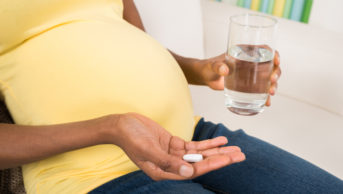
Shutterstock.com
Previous research has linked oily fish consumption during pregnancy to positive effects on early cognitive development, which could be related to its high vitamin D content.
To explore, researchers at the Universities of Surrey and Bristol analysed data on vitamin D status during pregnancy and measures of offspring neurodevelopment up to the age of nine among 7,065 mother-child pairs.
They found that those born to vitamin D-deficient mothers were more likely to have sub-optimal gross-motor development (odds ratio [OR] 1.20) and fine-motor development at 30 months (OR 1.23) as well as sub-optimal social development at 42 months (OR 1.20) than those born to mothers with sufficient vitamin D levels. However, there was no association with neurodevelopmental outcomes in older children, including intelligence quotient.
Reporting in The British Journal of Nutrition
[1]
(online, 12 July 2017), the team say the results indicate that preventing vitamin D deficiency during pregnancy could have a beneficial impact on some aspects of early neurocognitive development.
References
[1] Darling A, Rayman M, Steer C et al. Association between maternal vitamin D status in pregnancy and neurodevelopmental outcomes in childhood: results from the Avon Longitudinal Study of Parents and Children (ALSPAC). Br J Nutri 2017; doi: 10.1017/S0007114517001398


